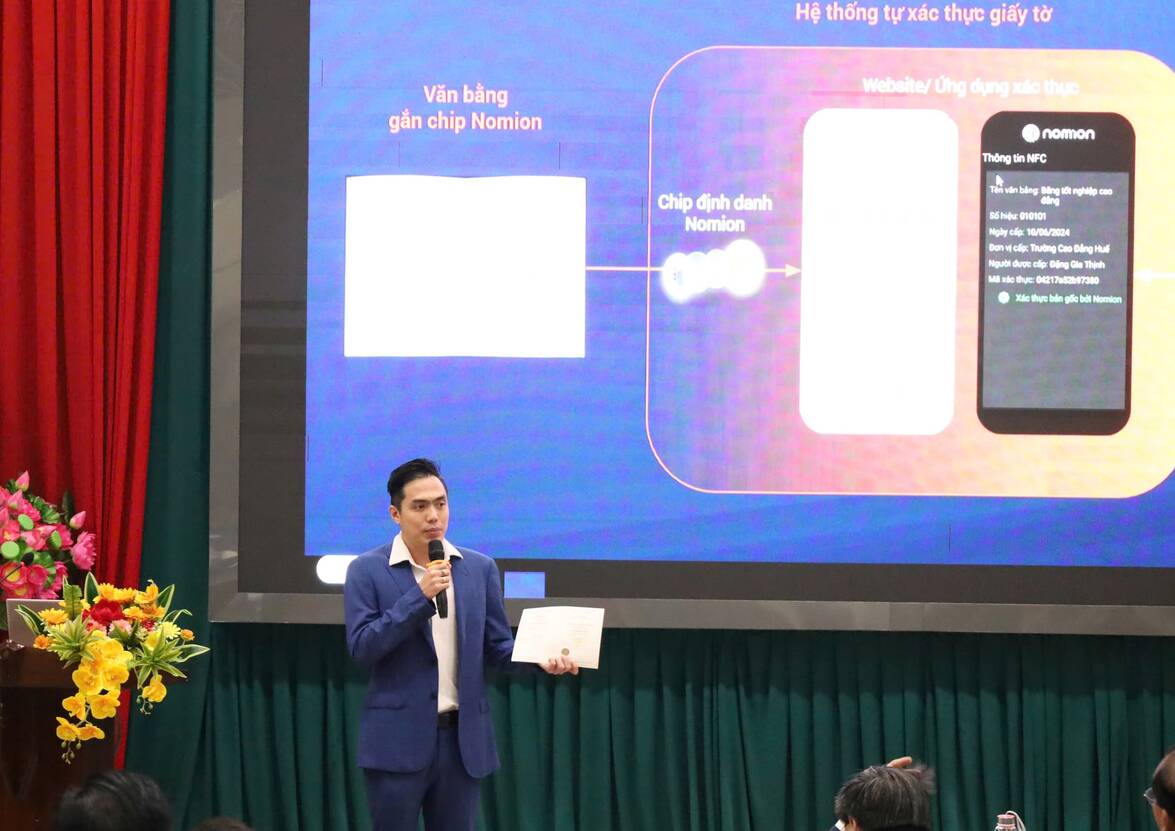Make effective use of validated data sources
“In the period 2025-2030, Vietnam is facing an important turning point in the digital transformation process. After years of efforts to build a technology infrastructure and digitize data, we have initially collected a huge amount of information about citizens, public administration, health, education, etc.
However, the big challenge now is how to effectively utilize this data source to promote digital economic growth, because "unverified data is just trash, verified data is gold", said Mr. Huy Nguyen - founder of Phygital Labs.
Before starting his business in Vietnam, Mr. Huy Nguyen spent many years as a senior manager at Google. According to him, in the next few years, Vietnam's digital economy will face many opportunities.
Regarding the digital market, based on the rich amount of data about users and socio-economic activities, it is an excellent condition to develop innovative digital services, targeting the right needs and personalizing products.
When data is authenticated and filtered, businesses and government agencies can deploy AI models and analyze Big data to help predict trends, optimize operations, improve customer experience, and thereby enhance competitiveness.
In addition, when the huge digital data warehouse is guaranteed for accuracy, it will promote innovation, creating a startup ecosystem, especially in the fields of financial technology, digital education, digital healthcare, etc.

Mr. Nguyen Ngoc Hoa - Chairman of the Ho Chi Minh City Business Association said that businesses are aware of the need for digital transformation in many fields and industries because the digital economy is a development trend in the future. In the Ho Chi Minh City Economic Forum in 2024, the Center for Industrial Revolution 4.0 was established, which will operate strongly in 2025.
This center will be the meeting place of supply and demand in the digital transformation process in particular and industrial transformation in general. Suppliers will come to introduce different digital transformation solutions such as logistics, technology, human resource management, environmental treatment, etc. In return, businesses will come to the center to place orders regarding digital transformation needs for connection.
“We really hope that this center, in addition to connecting supply and demand, will introduce shared solutions that can be applied to 2-3 businesses. This will help share costs, increase the feasibility of digital transformation activities, and promote the development of the digital economy,” said Mr. Hoa.
Mr. Dang Thai Duong, living in Thu Duc city, is working in the field of e-commerce, emphasizing that with the development trend of the digital economy, up to 80% of businesses are thinking about selling on e-commerce platforms and via online streaming.
KOC (short for Key Opinion Consumer) is becoming the new sales force, reviewers and livestreaming are gradually becoming an official subject in universities. According to Mr. Duong, the use of AI (artificial intelligence) and Big Data will become more popular. "Currently and in the future, AI contributes 90% of labor productivity, becoming an indispensable tool for office workers," Mr. Duong shared.
Challenge
Along with opportunities, the development of the digital economy in Vietnam also comes with challenges. Mr. Nguyen Van Tao, CEO of VNetwork Joint Stock Company, emphasized the risks of network security and online safety.
In 2024, VNetwork recorded more than 360,000 denial of service attacks on their enterprise customers, 72,000 more than in 2023.
Mr. Tao pointed out 8 risks and challenges when developing the digital economy, especially for businesses from ransomware attacks, data leaks and theft, online mining scams, supply chain attacks, fake news and deepfakes, attacks on the Internet of Things system, cyber espionage risks...

Meanwhile, Mr. Huy Nguyen emphasized the quality and reliability of data: “Unverified data, lacking a mechanism to ensure integrity and transparency will lead to wrong decisions and waste of resources”. In addition, the legal framework, privacy, infrastructure, and human resources are also major challenges for Vietnam when integrating and processing data on a large scale.
Regarding solutions, according to Mr. Huy Nguyen, Vietnam needs to strengthen data authentication, apply blockchain and AI to manage the data life cycle; develop a legal framework for data, issue detailed policies on ownership, cross-sectoral data sharing, and impose strict sanctions on violations.
At the same time, businesses and government agencies coordinate to create a testing environment (sandbox) for new data mining models, creating a launch pad for technology startups.
“In general, the period 2025-2030 will be the “ripe” period of Vietnam’s digital transformation. If we solve the problem of authentication and ensure data quality, we will transform the huge information warehouse into “gold” - a practical resource to break through and promote rapid and sustainable growth of the digital economy,” Mr. Huy Nguyen concluded.












